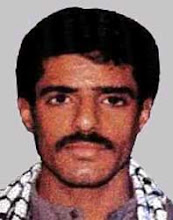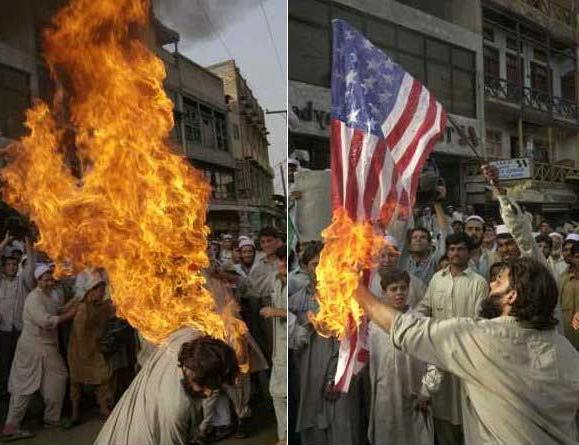I have posted some of Jane's articles on my site before, and with her permission of course. And Jane's newest article is extremely important at this time considering our governments relationship with not only Yemen but Libya as well. If you have been reading my posts then you know that I have never been able to follow the twisted logic that three different administrations have used and are currently using with dictators, and countries such as Yemen and Libya. Our own government has helped to create and is now in the process of creating even more hostile feelings and even more future attacks against our military and country with their failed policies that they continue to use even when though policies had shown over and over that they do not work. Yet here we are seeing those polices implemented again in both Yemen and Libya. I include Libya for many reasons, one being is that we are now supporting know terrorists, Jihiadists, former Gitmo terrorists, and former members of Al-Qaeda just like our government has done in Yemen for years. So it now appears that our own government's insanity in dealing with terrorists continues to worsen.
Jane is considered one of the top experts on Yemen, and on the corrupt regime of Saleh and his family who have ruled Yemen for over 30 years with an iron fist. With the support and help of our own government. Please take the time to visit her websites. Jane was instrumental in helping my wife and myself in many of our successes that we have had since attempting to hold our own government responsible for the promises that they all made to the murdered sailors, and the crew of the USS Cole. She helped us achieve a small measure of justice for not only our own son's murder, but the murder of his mates and 39 more sailors who were wounded. One of those sailors later died as a result of the trauma he received in that attack. Thanks again Jane for standing by me when no-one else would. And always there to tell me that it was and is possible for a small group of people to bring about big changes when battling our own government that would rather forget its own mistakes and failures than set those mistakes right.
Obama Fumbles Yemen Jane Novak
Yemen is a complex country that has been under considerable turbulence. Yet understanding Yemen tells us a great deal about the contemporary Middle East, Obama administration foreign policy, and the direction of the “Arab Spring.”
While Americans may think that their government’s recent policies and leadership have made the United States more popular in the region, the truth — as polls show — is generally the opposite. Obama administration policy is to support the existing dictatorship or at most to back a relatively cosmetic change in the regime. Thus, the Yemeni opposition weekly al Sahwa asked, “Why is America silent about the use of `counter-terror’ forces against the Yemeni people?”
It’s a good question. Since February, youth protests in Yemen morphed into a nationwide and intergenerational revolution to overthrow President Ali Abdullah Saleh and all his relatives, after 33 years in office. Protesters said they wanted a civilian interim council to oversee a new constitution and fair elections, with the ultimate goal of achieving a civil democratic state. In response, state security forces have murdered nearly 1,000 citizens around the country.
Thomas Krajeski, former U.S. ambassador to Yemen, summed up the policy as follows: “Ali Abdullah Saleh is our main conduit to everything we are trying to do in Yemen.” The U.S.’s primary goal in Yemen is to vanquish al-Qaeda. And the Obama administration believes that Saleh, or at least his apparatus, is best able to do that.
This is precisely the short-sighted approach that Obama has criticized when attributing it to predecessors’ policies in the Middle East. Under Saleh’s regime, torture is systemic, political kidnapping common, and artillery fire a frequent remedy to anti-regime sentiment. Economic opportunity, political power, and local authority are available only through access to Saleh and his family. Corruption and embezzlement of oil revenues and international aid mean a near absence of basic services. Water scarcity and hunger were already at critical levels, but as the economy ground nearly to a halt, things are even worse.
After snipers killed 58 demonstrators in March, much of the Saleh administration resigned, galvanizing the revolution. The unsavory General Ali Mohsen al Ahmar, a powerful military commander and Saleh’s half brother, brought the First Armored Division to Sanaa to protect the protesters and offered to leave the country alongside Saleh. In May, after dozens sleeping in tents were burned to death by security forces, Sadiq al-Ahmar, paramount sheikh of Saleh’s powerful Hasid tribe, announced his support for the opposition, calling Saleh a butcher.
The opposition Joint Meeting of Parties (JMP) initially disavowed the national uprising in fear of regime reprisal and due to Western pressure, reinforcing the schism between the formal opposition and the revolutionary youth.
In June, an explosion rocked the presidential palace leaving President Saleh severely injured. Millions rejoiced when Saleh flew to Saudi Arabia for medical treatment, assuming he would never return. However neither the Saudis nor the United States want too much change. Thus, the Obama administration endorsed Vice President Mansour Hadi as interim leader although Hadi refuses to assume the presidency as required by the Yemeni constitution.
The U.S. government opposes the protesters’ demand for a transitional council and instead supports a deeply flawed plan drafted by the Gulf Cooperation Council (GCC). The GCC plan calls for Saleh to pick his successor and resign in return for immunity from prosecution. It proposes a unity government of the hegemonic ruling party and ineffective opposition parties, the JMP. This approach followed by quick elections would re-entrench the Saleh regime. Saleh agreed and reneged three times, using weeks of negotiations to empty the banks, smuggle oil, and reposition troops. The protesters were incensed.
With nearly half the government and military and most of the public calling for regime change, in March, Saleh’s pretense of legitimacy was bolstered by U.S. statements and especially the State Department’s urging dialog among political parties to resolve the “political crisis.”
In his Middle East speech in May, President Obama devoted one line to Yemen, calling on “our friend” Saleh to follow through on his commitment to transfer power. During a July visit, U.S. officials warned the JMP against escalating protests or recognizing a transitional council. Obama administration officials merely meekly urge Saleh to accept the GCC deal, which in fact signals tolerance toward the regime.
The hundreds of millions of dollars in counter-terror funding allocated to Yemen since 2006 ran through Saleh’s son and nephews (known locally as the Four Thugs) who head the security services, counter-terror units, and other forces. The aid is stolen by them and at times they even help al-Qaeda. Since February, the Four Thugs are too busy attacking the Yemeni public to take on al- Qaeda. After warning of an al-Qaeda takeover, the state withdrew forces from Abyan and al-Qaeda quickly moved in to occupy Zinjibar City. Yemenis rather uniformly assert coordination of the events, as the Saleh regime historically has had cordial relations with al-Qaeda.
Thus, American policy is aimed at defending an unpopular, corrupt, and repressive system on the grounds that it helps combat al-Qaeda. The problem is that the regime is not effective in doing so.
The Saudis, too, support the regime, seeing it as a bulwark against Shia rebels. The irony is that while al-Qaeda has very little popular support in Yemen, the U.S and Saudi policies, by destroying any political alternative and backing a government that doesn’t really fight al-Qaeda, may end by strengthening that group’s appeal and the territory it controls.
Subscribe to:
Post Comments (Atom)










































No comments:
Post a Comment